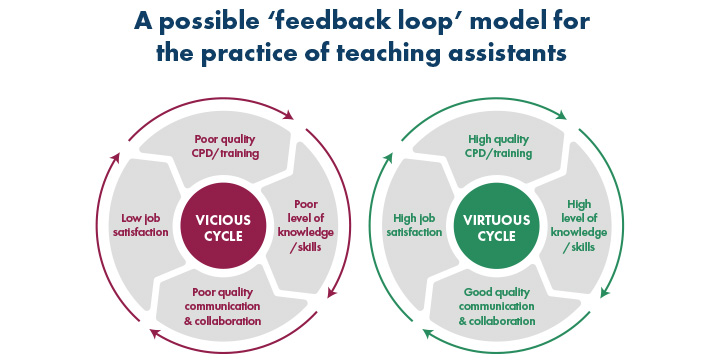25 June 2019

What does research suggest about effective utilisation of teaching assistants in the maths classroom?
- When budgeting for TA support, schools should bear in mind that the increase in TA deployment has been driven by teacher shortages, increased teacher workload and larger class sizes rather than strong evidence of their efficacy
- Schools keen to utilise TAs effectively may need to define their roles clearly across different contexts
- There is a need for high-quality research to investigate how TAs can support students in mathematics lessons effectively. Teachers and headteachers should be aware that little consensus exists because of limited and mixed evidence
- TAs may benefit from training in discourse, questioning and feedback to encourage student progress
- Schools should consider the value of maths-specific training and professional development for TAs supporting mathematics lessons
- Coordinating the working hours of teachers and TAs could support meaningful collaboration
- Effective collaboration between TAs and teachers can have positive effects on all involved, including better preparation of, and support offered by, TAs during lessons
View Espresso